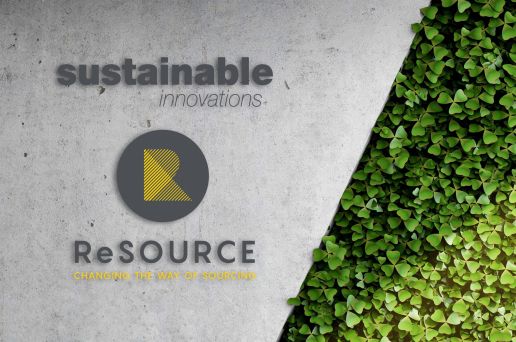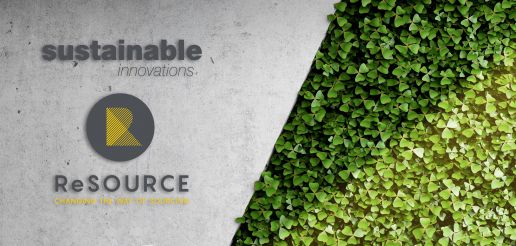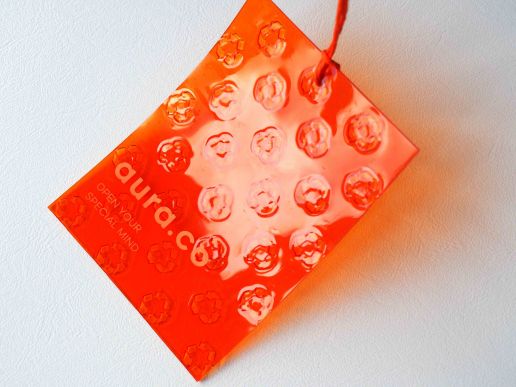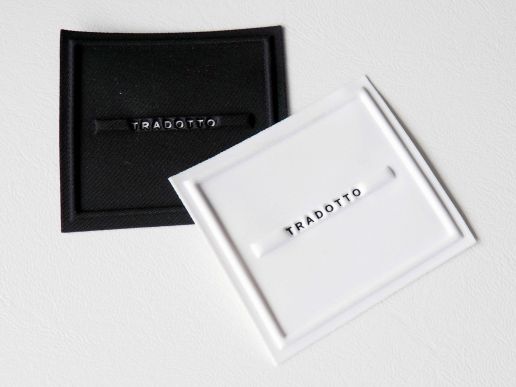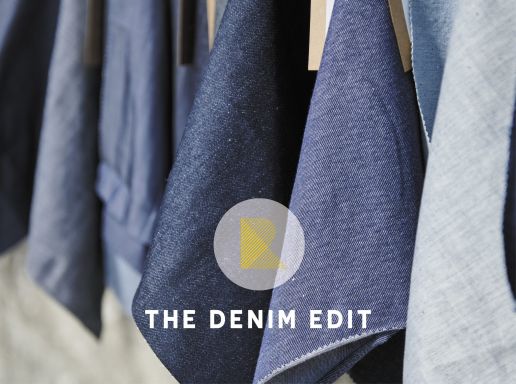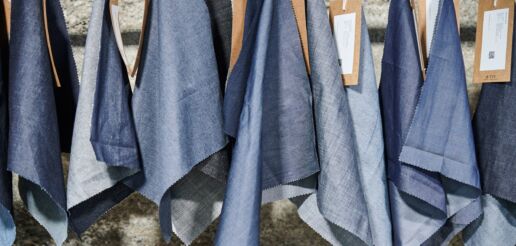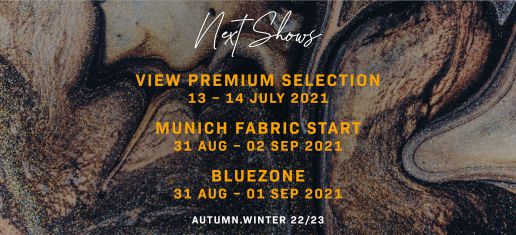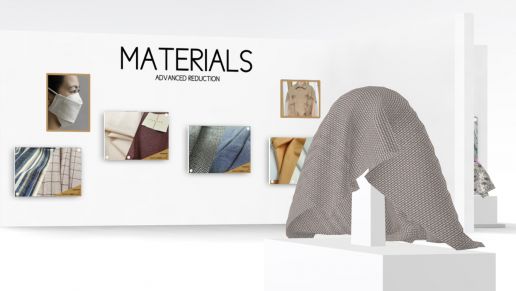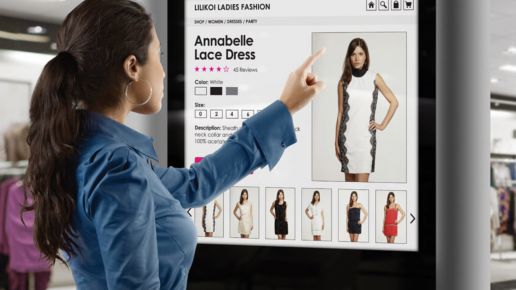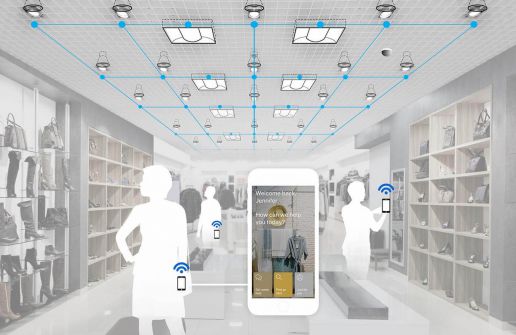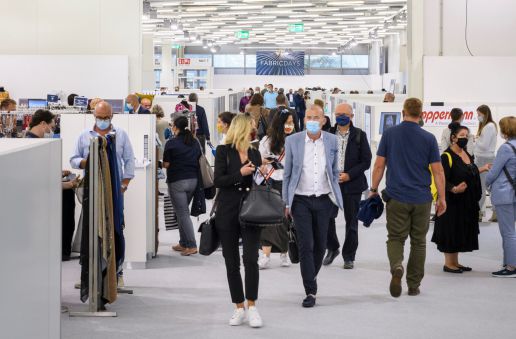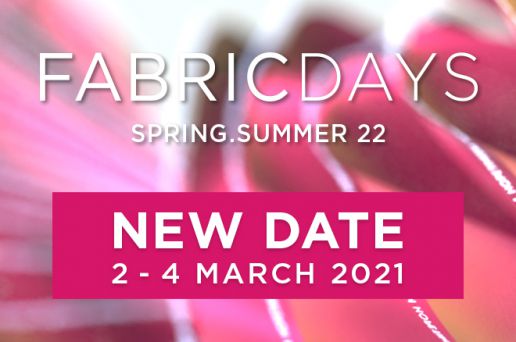Munich Fabric Start
Sustainable Season Starts with ReSOURCE
Discover sustainable innovations and responsible materials at the latest edition of ReSOURCE showcased at MUNICH FABRIC START, 31 August – 2 September 2021. See the water saving, ethical, fair, organic and responsible fashion & textile solutions that are stepping up the latest showcase in sustainable sourcing. Join us in Munich and browse a growing list of over 800 sustainable and responsible materials – save my ticket!
ReSOURCE aims to make sourcing sustainable fashion accessible, reliable and efficient. With the continued growth and importance of ethical fashion, our goal is to lead and support the future of innovative material development and sustainable manufacturing. Dedicated to improving our platform for sustainable sourcing our team will launch ReSOURCE at our next show with a new look, feel and a renewed focus on exploring and experiencing sustainable sourcing to further support our strong community of industry professionals and suppliers. Thanks to the unique link between ReSOURCE and the curated SUSTAINABLE INNOVATIONS, we achieve a holistic, sustainable showcase in one area at our next show.
What’s coming up at ReSOURCE?
In a comprehensive forum, the ReSOURCE area categorises and presents around 800 sustainably produced articles by exhibiting fabrics and additionals suppliers. New GOTS certified materials are added to the showcase such as ribbons in classic neutrals by Klaus Korte Etiketten and various cotton and linen blends by Seidra Textilwerke. Oeko-Tex certified fabrics in a range of blends using organic cottons and bamboo are featured at Carvema Textil – Bloomati. Bottonificio Piemontes showcases buttons made of recycled cotton and hemp fibers using natural dyes and eco binders. Texcart showcase a range of labels made of recycled lycra, natural paper and vegan leather. Calik Denim shows off a full range of denim using blends of recycled, organic and consumer waste cottons, featuring the eco T400 Lycra and the popular Refibra fibers. Nextil Group – Dogi Spain & Ritex offer body hugging stretch fabrics using sustainable Naia fibers.
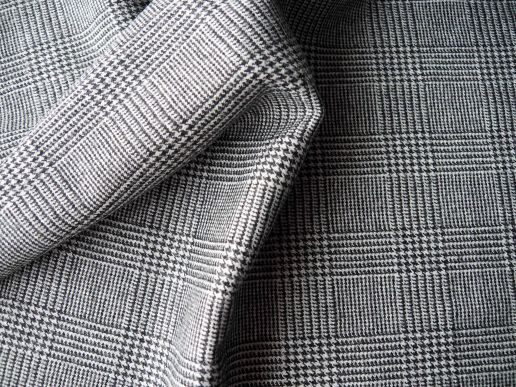
100% kBT Virgin Wool
Certified: GOTS
Seidra Textilwerke
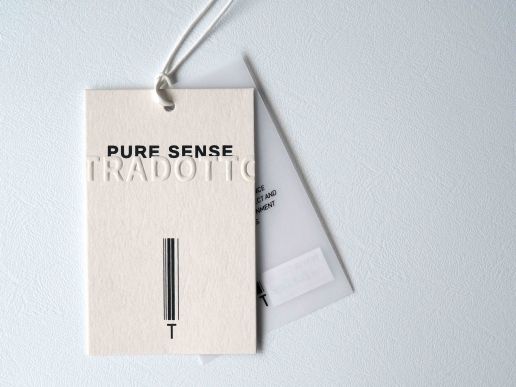
Natural Paper
Texcart
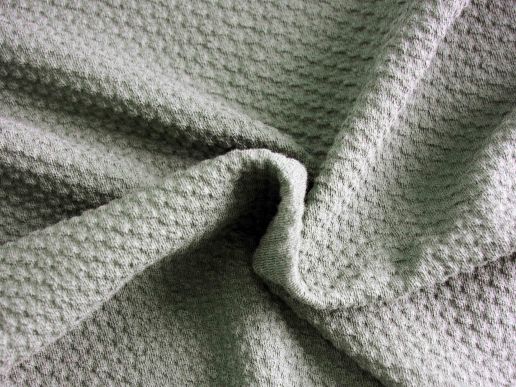
100% Cotton
Certified: GOTS
Seidra Textilwerke
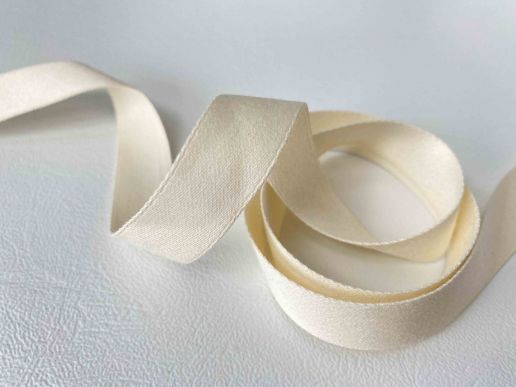
100% Cotton
Certified: GOTS
Klaus Korte Etiketten
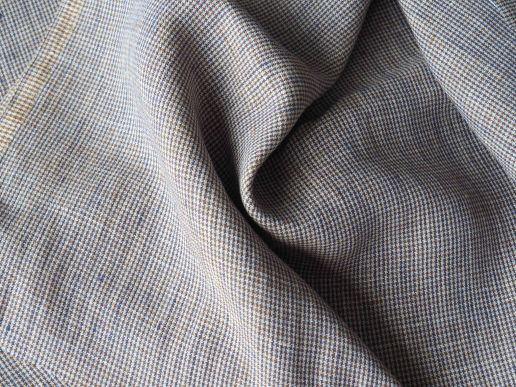
100% kBA Linen
Certified: GOTS
Seidra Textilwerke
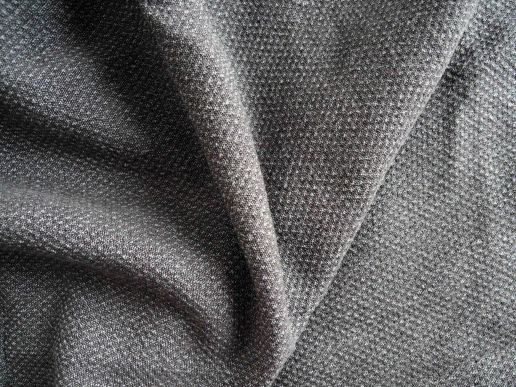
50% kBA Cotton, 50% kBT Virgin Wool
Certified: GOTS
Seidra Textilwerke
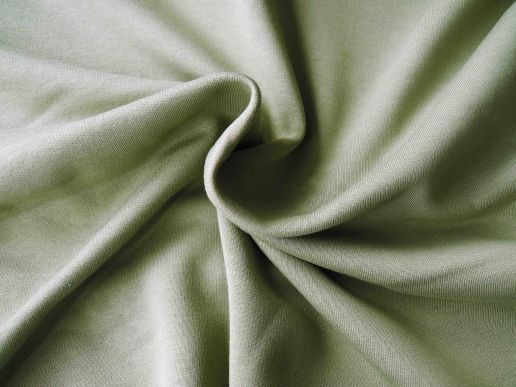
72% Organic Cotton, 28% Modal
Certified: Oeko-Tex
Carvema Textil – Bloomati
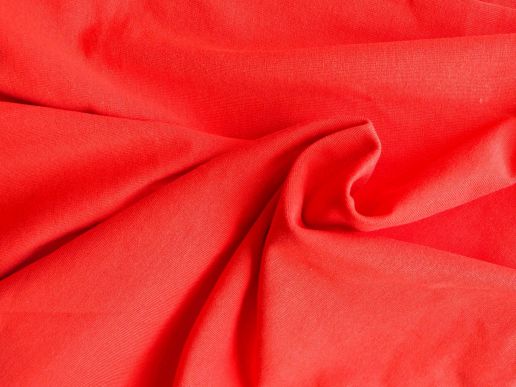
98%Organic Cotton 6%Elastane
Certified: Oeko-Tex
Carvema Textil – Bloomati
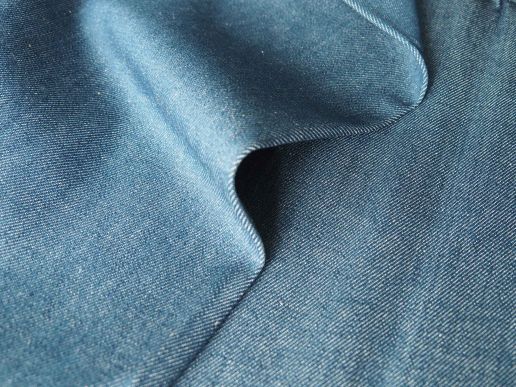
49%Cotton, 34% REC Cotton, 9% CLYRB (Refibra), 6% REC PES, 2% Lycra
Calik Denim
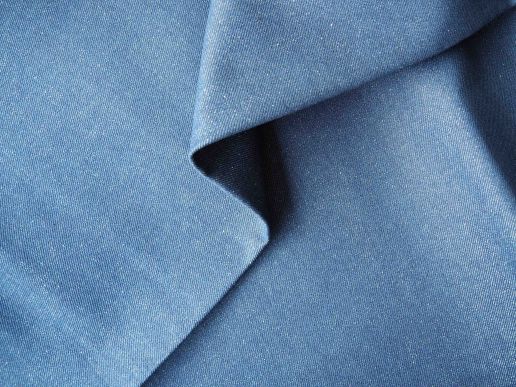
80% Pre-C REC Cotton, 20% REC Cotton
Calik Denim
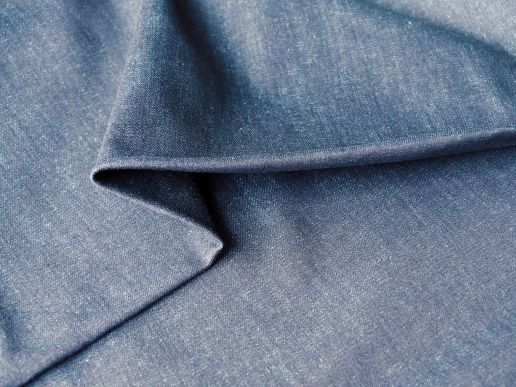
72% Cotton, 20% Organic Cotton, 6% T400 (Lycra), 2 % Lycra
Calik Denim
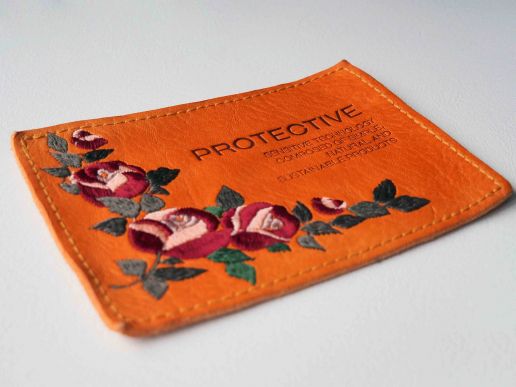
100% Vegan Leather
Texcart
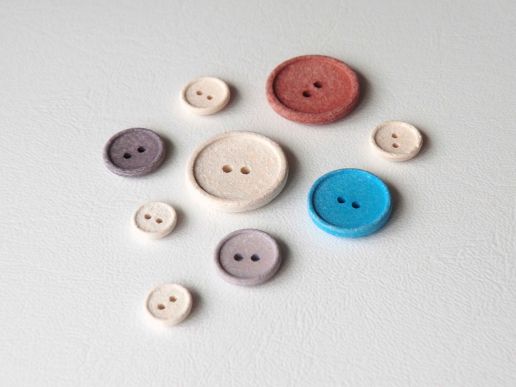
70%-80% Cotton Fiber, 2-5% Plasticisers and dyes, 15-30% Technical Binders
Bottonificio Piemontes
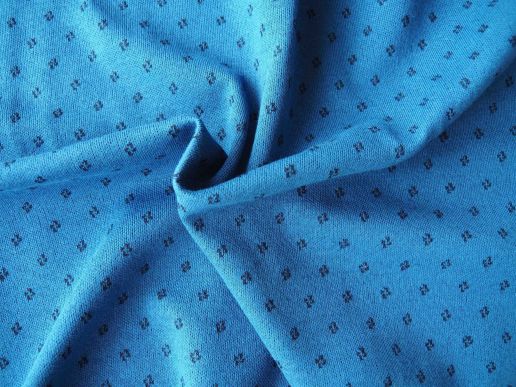
70% kBA Cotton, 30% KbT Virgin Wool
Certified: GOTS
Seidra Textilwerke
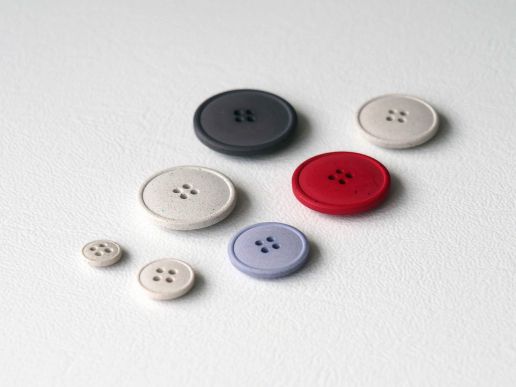
50-60% REC Hemp Fibers, 15-20% Fillers recycled thermosetting, 15-20%technical binders and dyes
Bottonificio Piemontes
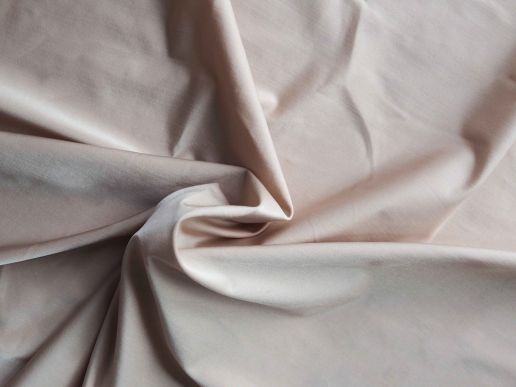
36% REC Polamide, 36% Polamide, 28% Elastane
Nextil Group – Dogi Spain & Ritex 2002
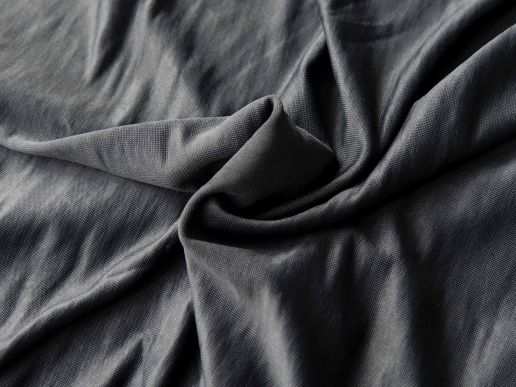
95% Acetate Naia, 5% Elastane
Nextil Group – Dogi Spain & Ritex 2002
Discover the latest showcase of sustainable innovations and responsible materials at ReSOURCE as presented by:
Agentur Ronzani │ Fieratex │ Angelo Valera │ Arula │ Bertheas & Cie │ Bornemann-Etiketten │ Bossa │ Bottonificio Piemonte │ C. Tessile │ c.pauli │ CadicaGroup │ Calik Denim Tekstil │ Carvema Textil │ CH.BREUNINGER.LEDER – Blue RenTec.one │ Confetti Textile │ Davaris Textiles │Dresdner Gardinen und Spitzenmanufaktur │ Elastic – LE Textile │ Ercea │Evlox – Tavex │ Feinjersey Fabrics │ Frameless Asia Pacific │ Henitex │ Eurojersey │ i.ma.tex │ Innova │ Ipekis Mensucat Turk │ J.Areal – Artigos Texteis │ Klaus Korte Etiketten │ Kuraray │ Lanificio Roma │ Lenzing │ Lukas Frankenberger │ Manifattura Pezzetti │Medike Landes │MGLab │Michael Bobritz │Mitwill Textiles │MUEHLMEIER Bodyshaping │Nastrificio de Bernardi │Naveena Denim Mills – NDM │ Nesatex │Nextil Group – Dogi Spain & Ritex 2002 │ Nilorn Germany │Olimpias Group – Labels division │Peter Büdel │Piovese Fashion │ Rabek Tekstil │Santa Lucia Manifattura Lane, GB. Studio │SCF – Société Choletaise de Fabrication │ Segovin Tekstil │Seidra Textilwerke │ Sharabati Denim │ Söktas Tekstil │ Stitch & Trim │ Sundag Heinrich │ Tejidos Royo │ Texcart │ Thermore (Far East) │ Tootal Fabrics │ Trimalhas Knit Inspiration │ Troficolor Têxteis, │ Turteks Tekstil Etiket │ Tüsa Denim │ Union 3 Fashion │ Unizip │ Utenos trikotazas │ Valerius Texteis – Clothius Tecelagem │ Varcotex │ Velcorex since 1828 │ Philea │ Verhees Textiles │ Vostex │ We Nordic Label Studios │ Yeniceri Tekstil │ Zeynar
As part of our ongoing commitment to supporting sustainability in fashion, we want to improve our online sourcing platform ReSOURCE. Therefore, we want to hear from you! What products do you wish you could find on ReSOURCE? What information are we missing that could your fashion brand enter the next stage of responsible sourcing? Share your thoughts with us via mail to info@munichfabricstart.com
Look forward to new products featured on the ReSOURCE sustainable sourcing platform, coming soon for Autumn.Winter 22/23.
#resource #onlinesourcingplatform #sustainablesourcing #responsiblefashion #sustainabletfashion #sourcesustainable #letsresource
ReSOURCE: The Denim Edit
The denim industry is taking innovative steps towards denim manufacturing that is cleaner, more respectful to our environment and that uses fewer resources. While each mill, launderer and denim service provider who exhibits at BLUEZONE are champions of sustainability in their own right, there is a growing ethos in the denim community and at our shows to support one another and grow towards a cleaner industry together.
Together with ReSOURCE, our online sourcing platform for sustainable materials, we are able to evaluate denim according to different sustainable criteria across the fiber, dyeing and finishing stages of denim production. Understanding how the material is made, under which conditions, from which materials and the production methods will go a long way to deciding which sustainable denim is relevant to you and your brand. Get to know the leading 3 material criteria you need to know about when it comes to sourcing sustainable denim:

Lyocell Tencel®
Lyocell is a manufacturing process of rayon which is much more eco-friendly than its relatives modal and viscose. Lyocell is made in a closed-loop system that recycles almost all of the chemicals used. Tencel® is made from eucalyptus from PEFC certified forests. Eucalyptus trees grow quickly without the use of pesticides, fertilizers or irrigation.
Look for denim which contain Tencel if you are interested in:
- Low water usage
- Using renewable resources
- Chemical control
- GMO free
- No soil erosion
- Biodegradable
Eco Stretch
Fiber innovations such as Creora, Eco Lycra and Roica EcoSmart Elastane provide a biodegradable alternative, however stretch denim is synonymous with synthetics and will typically contain a percentage of either polyester, nylon or elastane. Until recently it was not possible for a stretch denim to be 100% biodegradable but soon Canidani, will launch their latest Bio-Stretch fabric Covera™ at BLUEZONE on August 31st 2021.
Look for eco stretch denim if you are interested in:
- Reducing the time for the product to degrade
- Reduce the amount of synthetic fibers used in production
- Blending fibers to produce new qualities
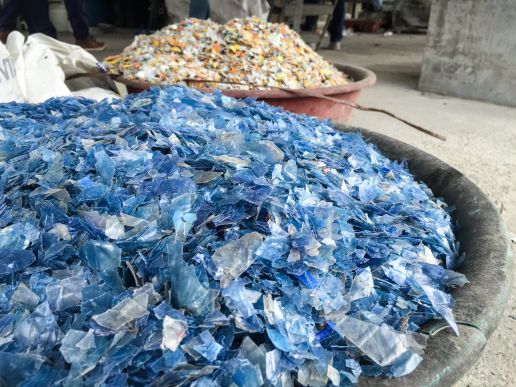
Recycled Fibers
A lot of research is underway to making denim using post-consumer and post-production waste. Often, recycled fibers make up only a percentage of the overall composition of the final denim product. Typically the most popular recycled materials used in denim production include: cotton; polyester; post-consumer denim; post-consumer fibers; PET and nylon.
Look for denim which contains recycled fibers if you are interested in:
- Using waste materials
- Diverting waste from landfills
- Reducing waste
- Low water usage
- Low energy usage
- Blending fibers to produce new qualities
Lyocell Tencel®
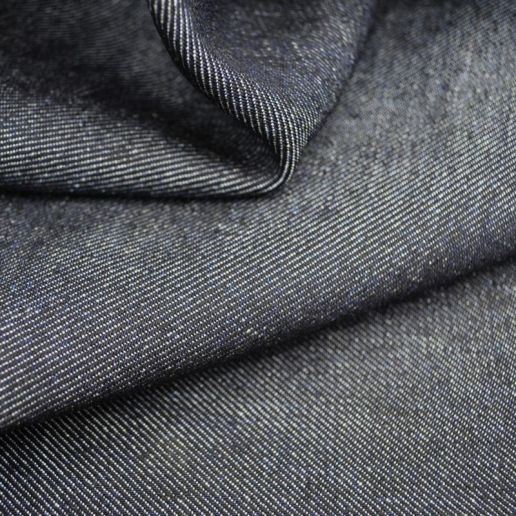
100% Tencel
Certified: FSC , SA 8000
Bossa Denim
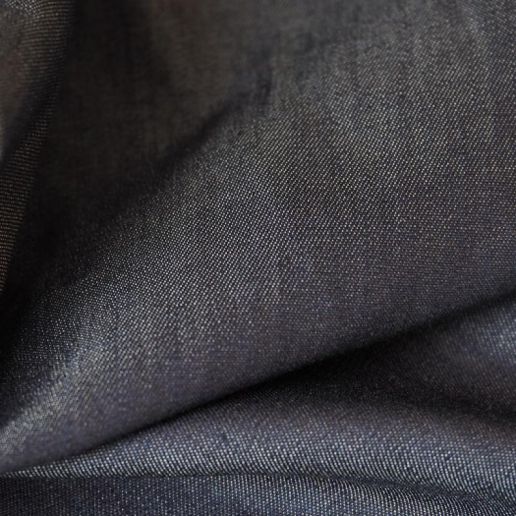
70% Cotton, 30% Tencel
Certified: Oeko-Tex 100
KG Denim
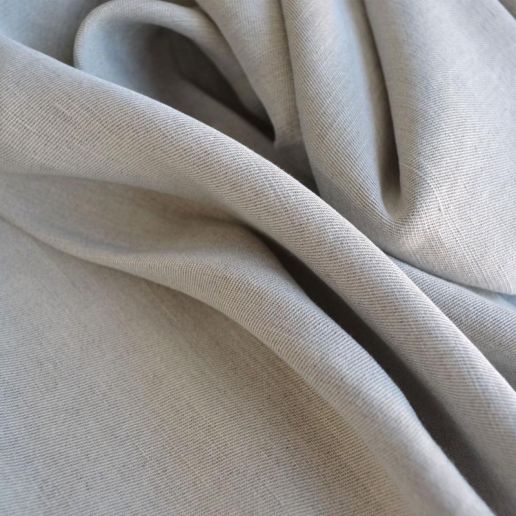
60% Linen, 40% Tencel
Certified: FSC, Oeko-Tex 100
Velcorex
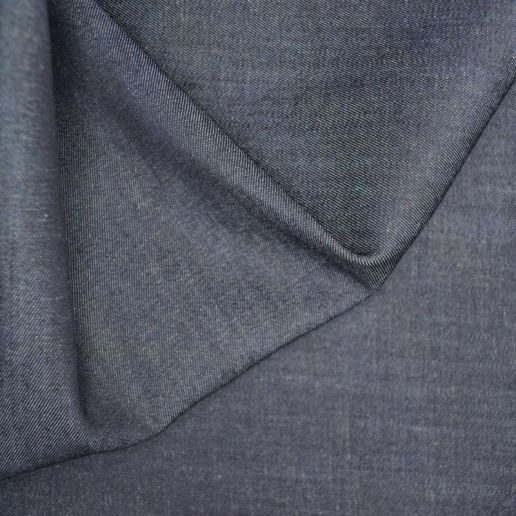
50% Cotton, 40% Tencel, 7% T-400 Lycra, 3% Lycra
Certified: FSC, BCI
Calik Denim
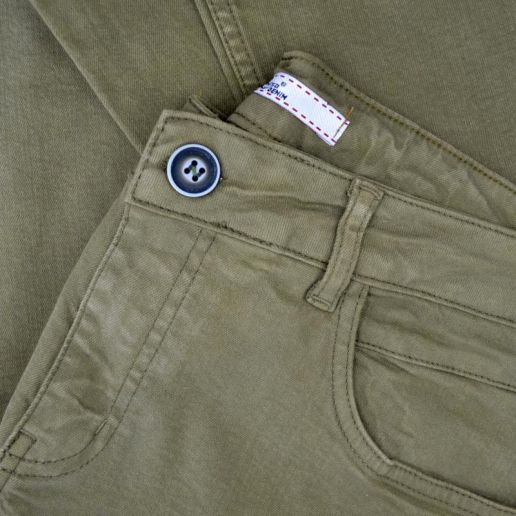
49% Cotton, 31% REC Cotton, 18% Tencel, 2% Elastane/Spandex
Certified: FSC, GRS
Tüsa Denim
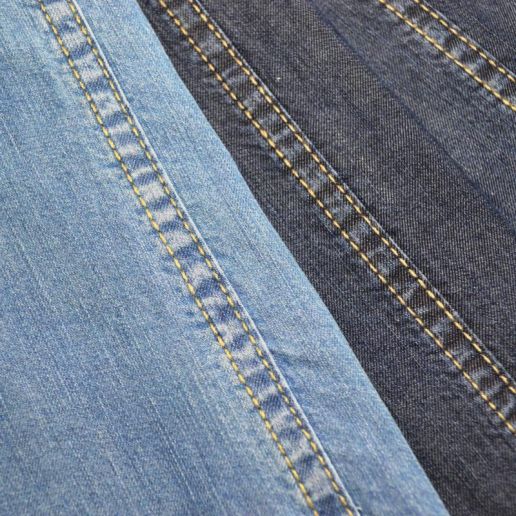
66% Cotton, 32% Tencel, 2% Elastan/Spandex
Certified: FSC, Oeko-Tex 100, BSCI, BCI
Tejidos Royo
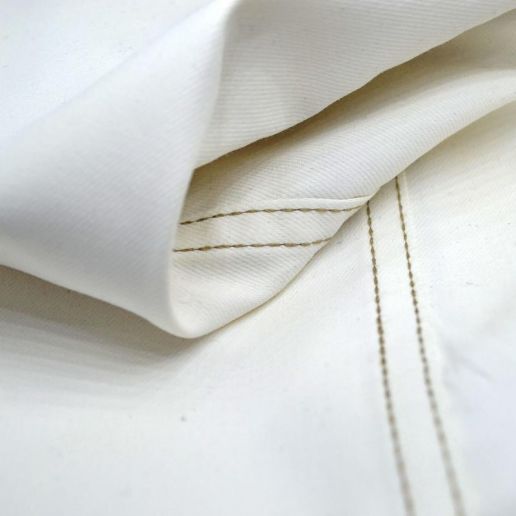
93% Tencel, 6% Elastomultiester, 1% Elastane/Spandex
Certified: FSC, Oeko-Tex 100, BSCI
Tejidos Royo
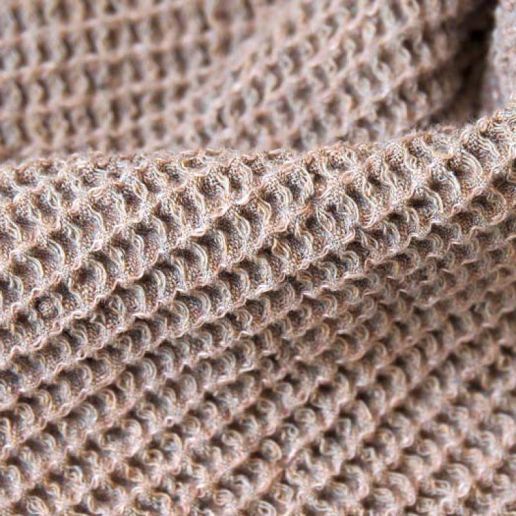
50% Viscose, 25%Tencel, 25% REC Denim Fibers
Certified: Oeko-Tex, GRS
Linas
Recycled Fibers
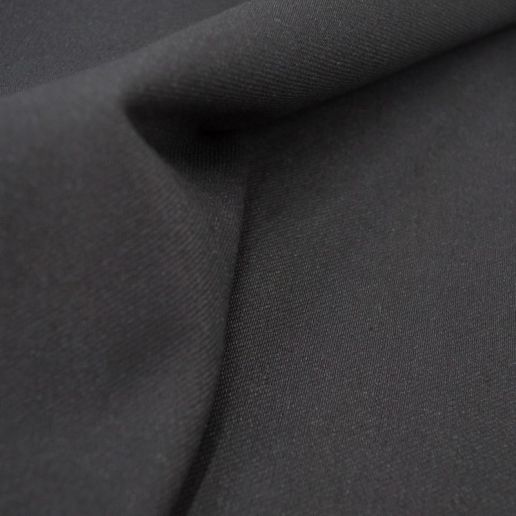
34% kbA Cotton, 30% REC Denim, 26% Cotton, 5% PES, 3% REC PES, 2% Elastane/Spandex
Certified: SA 8000, OCS BLENDED, ISO 14001
Bossa Denim
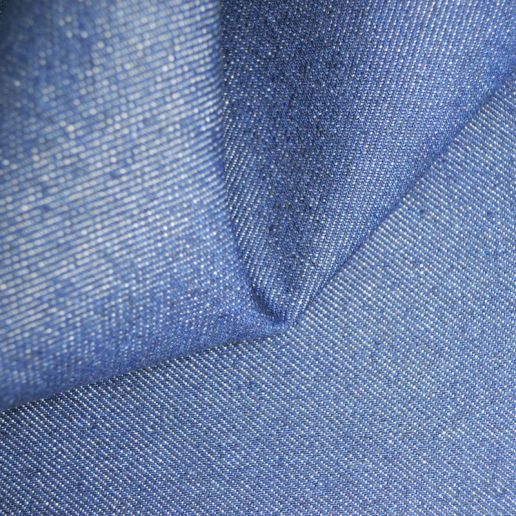
48% REC Cotton, 39% Cotton, 6% Ecovero, 6% REC PES, 1% Elastane/Spandex
Certified: FSC , SA 8000, OCS BLENDED, RCS blended, ISO 14001
Bossa Denim
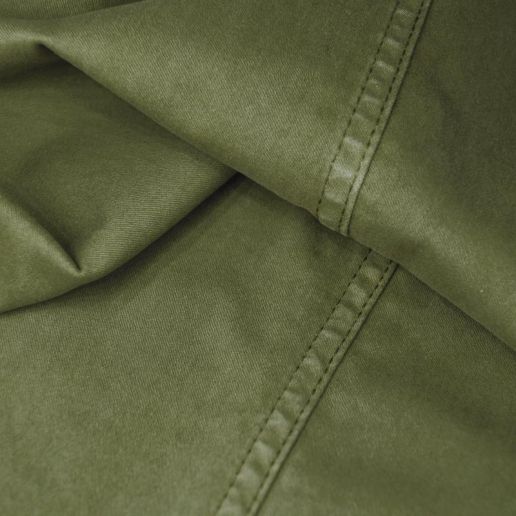
55% Cotton, 30% REC Cotton, 10% T-400 Lycra, 2% Elastane/Spandex
Certified: Oeko-Tex 100, GRS, BSCI, BCI
Tejidos Royo
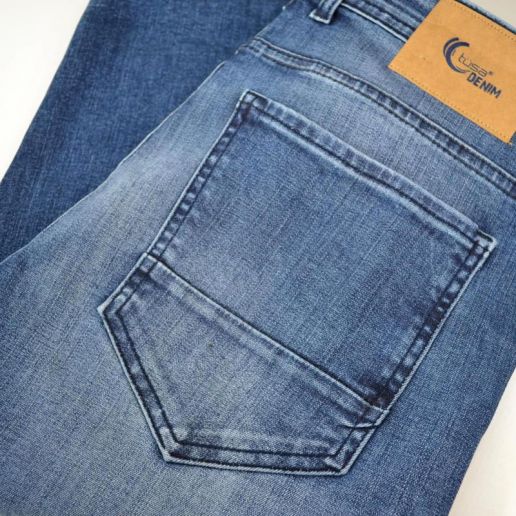
80% kbA Cotton, 18% Repreve, 2% Elastane/Spandex
Certified: GRS, OCS Blended
Tüsa Denim
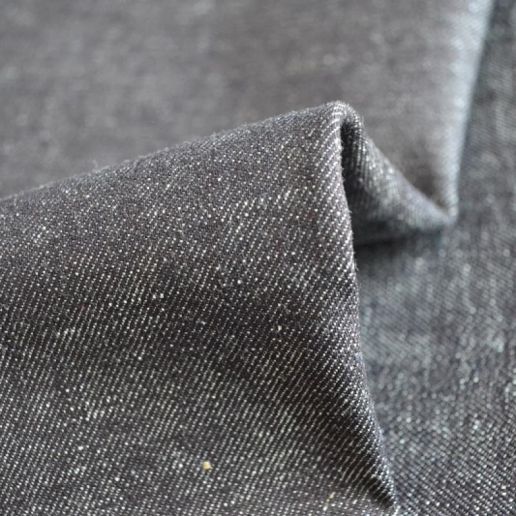
74% kbA Cotton, 24% REC Cotton, 2% Elastane/Spandex
Certified: GRS, BSCI, OCS 100, STeP by Oeko-Tex
Tejidos Royo
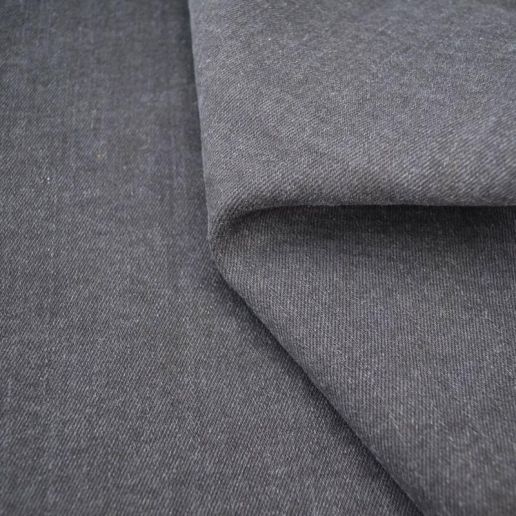
64% Cotton, 20% REC Cotton, 14% PES, 2% Elastane/Spandex
Certified: GRS, BCI
Naveena Denim
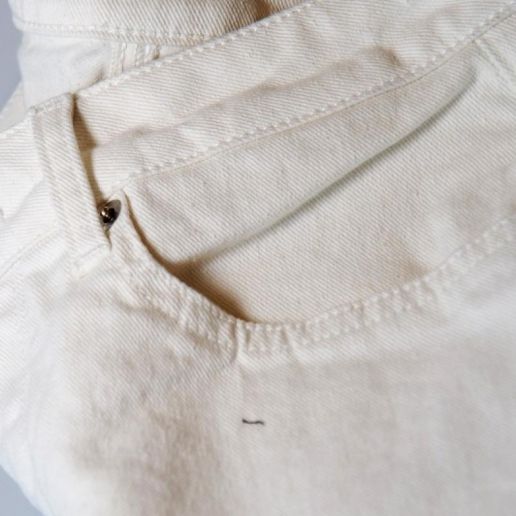
72% Cotton, 20% REC Cotton, 5% PES, 3% Elastane/Spandex
Certified: GRS, BCI, OCS 100, OCS BLENDED, RCS 100, RCS blended
Gediz Kumaş
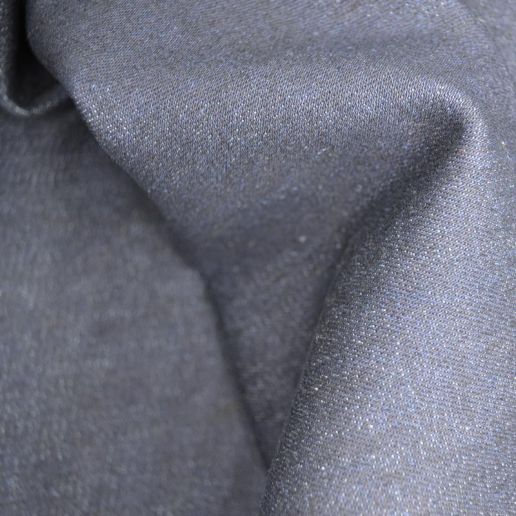
77% Cotton, 15% Repreve, 6% REC PES/PET, 2% Elastane/Spandex
Certified: GRS, BCI
Naveena Denim
Eco Stretch
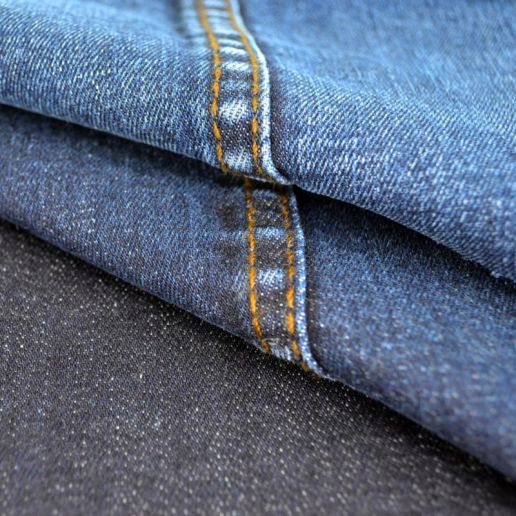
98.5% kbA Cotton, 1.5% Elastane/Spandex
Certified: GOTS, ISO 14001
Evlox Denim
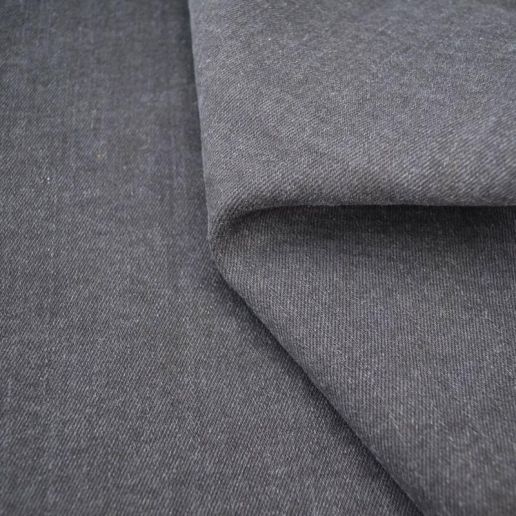
64% Cotton, 20% REC Cotton, 14% PES, 2% Elastane/Spandex
Certified: GRS, BCI
Naveena Denim
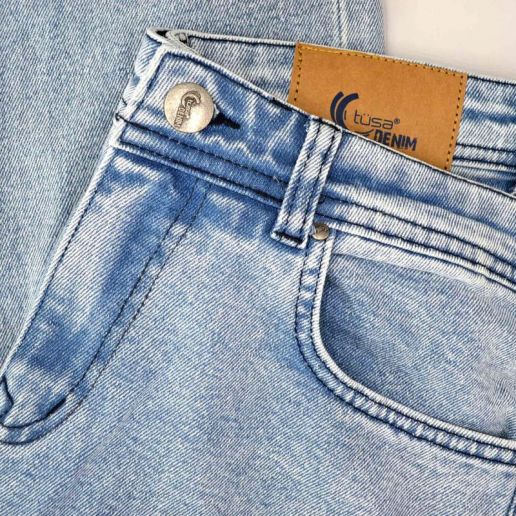
81% Cotton, 18% REC PES, 1% Elastane/Spandex
Certified: GRS
Tüsa Denim
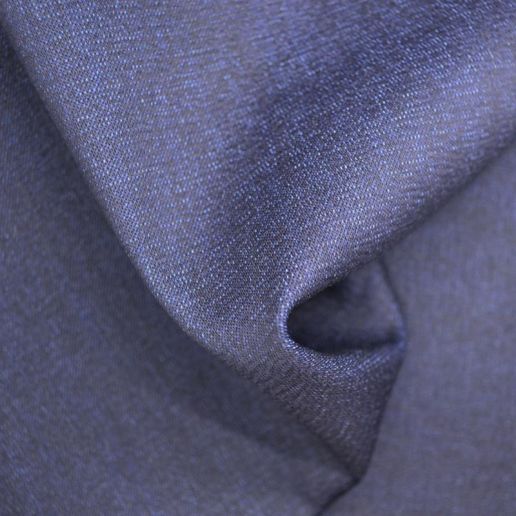
55% Cotton, 42% Biodegradable Polyamide, 3% Biodegradable EL
Certified: SA 800, BCI, ISO 14001
Bossa Denim
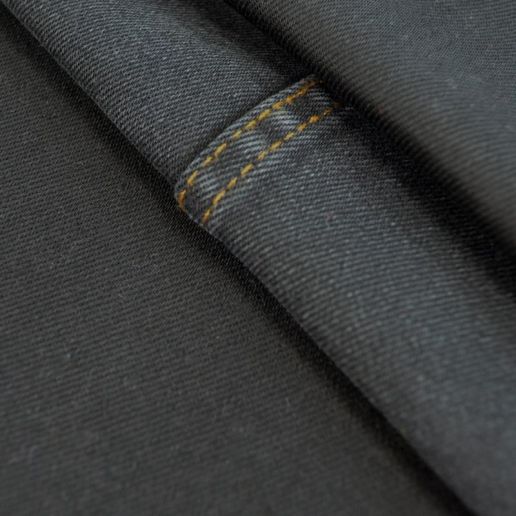
98.5% kbA Cotton, 1.5% Elastane/Spandex
Certified: GOTS, ISO 14001
Evlox Denim
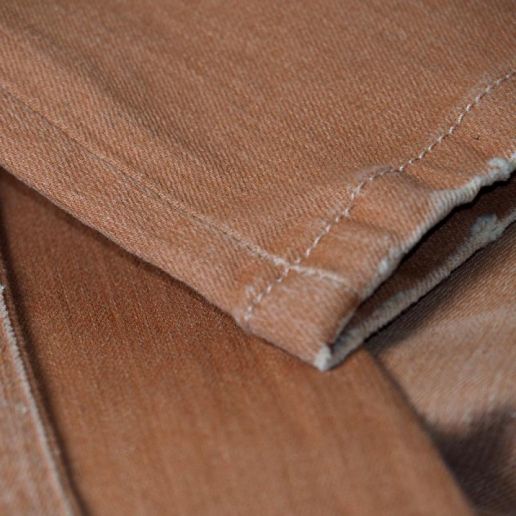
98% kBa Cotton, 2% Elastane/Spandex
Certified: GOTS, Oeko-Tex 100, BCI
Maritas Denim
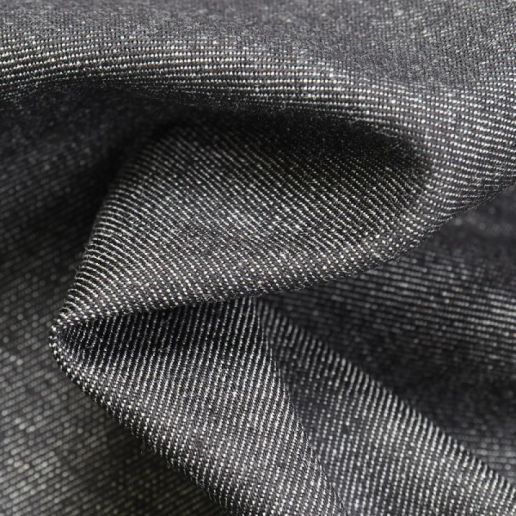
80% kbA Cotton, 11% Cotton, 6% T-400 LYCRA, 3% Elastane/Spandex
Certified: BCI
Calik Denim
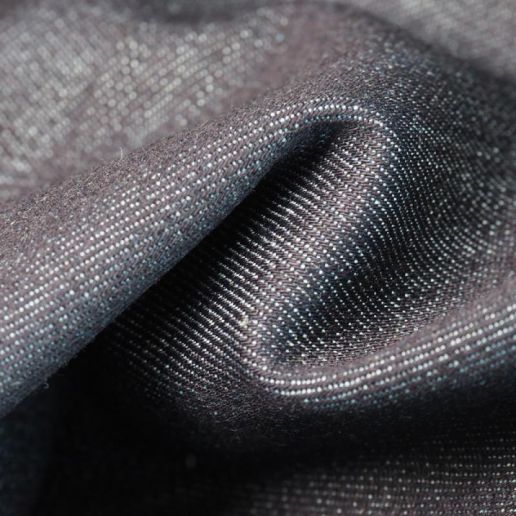
82% kbA Cotton, 15% REC Cotton, 3% Elastane/Spandex
Certified: Oeko-Tex 100, OCS, RCS 100
Orta Anadolu
As part of our ongoing commitment to supporting sustainability in fashion, we want to improve our online sourcing platform ReSOURCE. Therefore, we want to hear from you! What products do you wish you could find on ReSOURCE? What information are we missing that could your fashion brand enter the next stage of responsible sourcing? Share your thoughts with us via mail to info@munichfabricstart.com
Look forward to new products featured on the ReSOURCE sustainable sourcing platform, coming soon for Autumn.Winter 22/23.
#resource #onlinesourcingplatform #sustainablesourcing #responsiblefashion #sustainabletfashion #sourcesustainable #letsresource
RISE: Autumn.Winter 22/23

Autumn.Winter 22/23 welcomes a new world of connectivity. The guiding theme and dedicated focus for the upcoming edition of Munich Fabric Start celebrates and perpetuates the meaningful connection to unite the industry under the seasonal title ‘RISE’.
A reality bound by a global pandemic stirs the industry to reinvent itself once again. New perspectives bring us closer together and give rise to dreams, visions and collections that brighten and uplift our world. Emotion is infused in our future as we seek out joy and comfort with a warmed sense of connection.
Sensitive and in tune with our surroundings, we are in close touch with our haptic senses as we long for connection on many levels. We are reassured by our analog experiences as we explore the feel and the nature of our tactile world. Be it material or emotional, our textiles reflect a kind of lightness, expressing the joy of celebration and party, we let go and are entertained. A collaborative spirit drives our digital world as we network using 3D technology – we excel our visions, planning and design processes to reach new levels.
With RISE, we strengthen what unites us as part of a global thrivability movement. Holistic and transparent concepts, from fiction to reality, guiding a path towards circular economy, from fiber to fiber. We witness the fusion of nature and technology as hemp becomes the new mainspring for natural fibers and materials. Education plays an important role in the development of anti-greenwashing, climate-friendly visions and inclusion of looks, gender and body shapes, as well as new modular models in order to be able to react more flexibly to the market. All of which embrace the growing feelings that less is more, better quality is more.
We define our limits in order to push beyond them. Pragmatic solutions lead us to discover the joy in reduced colours and collection materials. Thinking beyond what was previously possible. We move forward with digitization, enjoying its advantages with a relaxed ease and assurance we ultimately bring us closer with our natural world.
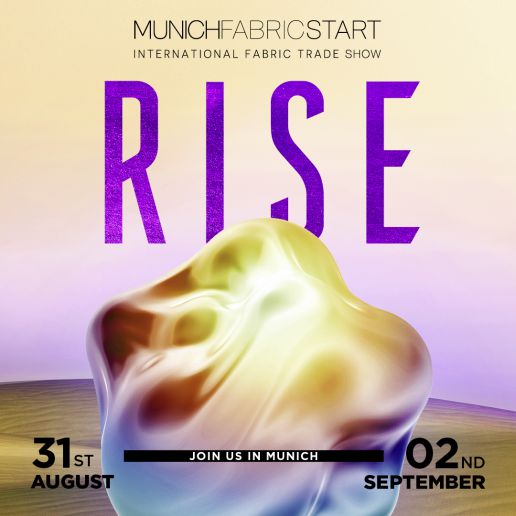
MUNICH FABRIC START
31/08 – 02/09/2021

BLUEZONE
31/08 – 01/09/2021
Our Upcoming Shows
Our team is ready and excited to get back to doing what we love best: organising trade shows for you. With a healthy mix of confidence and realism, we look forward to the summer months ahead and look forward to seeing you again at our upcoming trade shows for Autumn.Winter 22/23:
VIEW Premium Selection: 13 – 14 July 2021
MUNICH FABRIC START: 31 August – 02 September 2021
BLUEZONE: 31 August – 01 September 2021
Working together with our industry partners, our team is committed to meet the wishes and market needs for physical events with this trade fair planning. Using the example set by our FABRIC DAYS event, which we successfully realised in September 2020, we will of course implement the upcoming trade fairs in a Covid-19 compliant manner, because our priority remains to ensure the safety of all those involved.
Our goal is to present the established, premium portfolio of MUNICH FABRIC START again at our show in September 2021: Fabrics, Additionals, Bluezone, Keyhouse, Design Studios, Sourcing, ReSource and Sustainable Innovations. Don’t miss your chance to meet your partners in person and connect with the industry at our shows. Event registration will be available in the weeks leading up to our show but get ready here and create your visitor login.
In the meantime, please take another look at our DIGITAL TREND SPACE with your latest material developments and our newly developed BLUEZONE Living Page – we are also currently working on a new homepage for MUNICH FABRIC START, which we will be launching soon.
Taking Steps towards Digitisation
Digitisation is more important than ever. Accelerated by the global pandemic, partnerships and workflows between suppliers and fashion brands have become increasingly more digital. Fabric mills focusing on digitisation will not only cater to a brand’s digital product creation but also greatly increase customer service, reduce costs and reduce resources.
In most cases, fashion brands would digitise their fabric swatches in-house, with the swatch ordered and shipped this is a process which can take as long as 4 weeks. To optimise this process, there is a greater push to move the digitisation of fabrics from brands to the suppliers. With this shift, designers can immediately begin their design process, allowing them to move up their ordering schedule for the collections accordingly.
In a move which we hope will encourage and support our exhibiting manufacturers in the potential advantages of fabric digitisation, we have digitised and showcased a selection of new material developments in the WE ARE ALL IN Digital Trend Space for the new Spring.Summer 22 season.
We first introduced the concept that fabric suppliers will offer a digital twin alongside physical swatches at our 2019 edition of Keyhouse. After successfully demonstrating the individual steps of fabric digitisation in the Digital Fabric Lab, we have now succeeded in creating a realistic image of digital fabric samples in cooperation with individual partners from this network.
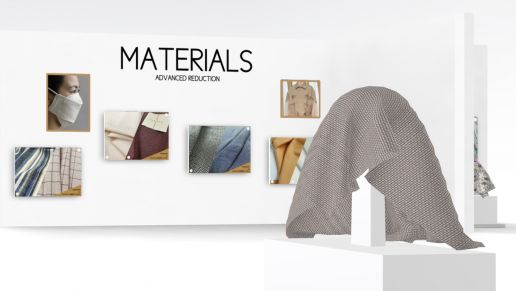

We are acting on behalf of the industry to enter the next phase of digitisation and communicate the advantages to proactively adopt 3D technology. Thanks to Triple Tree software developers, Vizoo, material visualisation specialists and Caddon as our experts in multispectral colour communication, we could visualize selected fabrics from our exhibitors as digital samples in our Trend Space.
We are planning further exciting projects with our partners in the near future. For now, we invite you to discover the 3D digital fabrics and trend inspirations showcased in our DIGITAL TREND SPACE.
How IoT is Making A Sustainable Impact on Retail
Could IoT Be The Technology Solution That Drives More Fashion Businesses To Adopt A Circular Business Model?
ARTICLE BY MUCHANETA KAPFUNDE, FOUNDING EDITOR-IN-CHIEF FASHNERD.COM
Did you know that IoT, Internet of Things, is all around us? With more connected things than people globally, we live in an IoT-enabled world that has the potential to power, a circular future for fashion and retail businesses. Destined to make a quantifiable impact, the Internet of Things has been busy proving itself to be beyond the hype.
Described by experts as a service innovation tool, IoT has been touted as the solution that will help fashion businesses change how they operate when consuming resources and waste production. Designed to make businesses smarter and more responsive, retailers adopting IoT are not only managing to transform their entire value chain; but they are also reducing the impact their business has on the environment. How might you ask? Allow me to elaborate.
Harnessing the Power of IoT
Responsible for automating the world around us, IoT has been described as merging the digital and physical universes. No longer restricted to wearable devices, intelligent cars or smart homes, IoT is a technology solution that offers fashion retailers’ the opportunity to interact and connect with customers, manufacturers and other businesses.
As a solution that presents retailers with the opportunity to reduce their environmental impact, IoT has become vital in supporting the industry to push forward sustainable measures. Sustainably innovating the retail sector and moving fashion towards a new and exciting direction are game-changers, one of them is Eon. The NY based startup, which partnered with Microsoft last year, has developed an IoT software that connects and stores digital identities of connected apparel.
It is no secret that retailers are more adaptors of innovation than innovators themselves. This is why Eon’s IoT platform continues to play a more vital role in everyday business. Redefining fashion and helping the industry scale new circular business models such as rental, resale, digital wardrobing, peer-to-peer exchange, styling services, reuse and recycling, Eon plans to bring a connected and circular economy across fashion to the forefront, which is why in 2020, alongside Microsoft they pledged to have 400 million fashion products online by 2025.
In an interview at Munich Fabric Start’s Keyhouse, in September 2019, I sit down with CEO and found of Eon Group, Natascha Frank. Watch the interview here.
IoT, Playing a Pivotal Role in a New Retailing World
IoT is helping fashion businesses have it all; commercial growth and a strategic system that allows them to keep their environmental commitments. Through IoT sensors and IoT-enabled data analytics, unique opportunities are not only being brought to the forefront; they are also delivering change. Playing a pivotal role in a new retailing world, IoT solutions are positively impacting the fashion industry because they have created conditions that are instrumental in encouraging retailers to increase their sustainability initiatives. Introducing a new awareness, IoT is helping deliver sustainability breakthroughs that include reducing energy use and carbon footprint, optimizing supply chains, sourcing responsibly and minimizing waste.
So it should not come as a surprise that the World Economic Forum estimates that 84% of IoT systems in use have the potential to meet the United Nations Sustainable Development Goals. Even with the scepticism still being received, IoT is still considered to be one of the largest enablers pushing forward the rise of Internet-enabled retail. Not only has it been improving efficiency and transparency, but IoT’s impact has also helped create conditions that allow for specific shifts to happen in retail. With continuous noise coming from the IoT space it is not without its challenges. Read more on this here.
One of the setbacks arising from this nascent trend is the issue of security and privacy. It is a problem that is slowing down the benefits that the IoT revolution can add to the industry’s sustainability initiatives. With most retailers admitting to not being technology experts, it is this lack of IoT know-how when it comes to security and privacy problems that is hindering the widespread adoption of the solution. IoT brings to the table a different set of privacy issues, separate from the ones we already face with ‘regular’ internet. So what is needed is a realistic approach to privacy and security, that came put in place sooner rather than later.
Closing the Gap Between ‘Wanting to be Innovative’ and ‘Being Innovative’
Although not everyone expects IoT to become a universal tool, it does not take away from its tremendous potential to make a pervasive impact on fashion retailers’ sustainability goals. Still considered a relatively young complex technology, IoT has, with time, become a valued digital technology respected for its ability to offer retailers a unique opportunity to tackle some of the most pressing issues like running a greener fashion business.
Accelerated by COVID-19, the gap between ‘wanting to be innovative’ and ‘being innovative’ is growing smaller. It is a change that has come about, mainly due to more retailers starting to invest in IoT for sustainable purposes. As IoT technology goes through continuous improvement, retailers need to be open to playing the long game because I believe that when it comes to the merger of IoT, sustainability and retail, we haven’t seen anything yet.
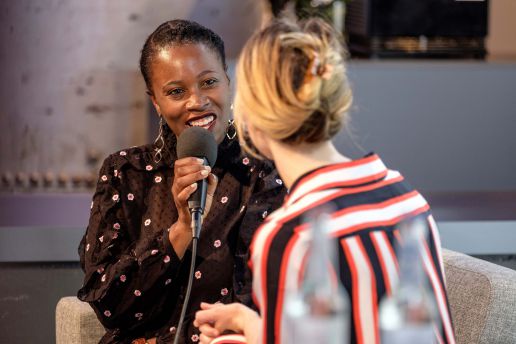
ABOUT THE AUTHOR
Founding editor-in-chief of FashNerd.com, Muchaneta has worked in the fashion industry for over 14 years. She is currently one of the leading influencers speaking and writing about the merger of fashion with technology and wearable technology.
Muchaneta Kapfunde | editor@fashnerd.com
Why It's Time For A Digital Intervention
Why It's Time For A Digital Intervention
ARTICLE BY MUCHANETA KAPFUNDE, FOUNDING EDITOR-IN-CHIEF FASHNERD.COM
In an increasingly digitised world, the present-day landscape for fashion businesses is changing. The technology tinkerers and digital blacksmiths are challenging the traditional way of designing. Digital activity is no longer just focused on sales; instead, there is a new digital approach transforming existing design practices. Reimagining the process of designing, creating and showing garments, digital tools are arming designers and brands with technology created to eliminate the manual steps usually taken in the traditional fashion design cycle.
A Digital Approach To Garment Creation
With optimism towards technology growing, more brands are becoming open to adopting new business models and beginning to find their footing in the digital economy. As we enter 2021, more fashion designers are starting to understand why digitally managing the back end of their business is essential which has meant that we are hearing less of “We know digital is important, but…”. Through digital intervention, fashion businesses are not only altering how they operate day-to-day, they are also taking a step back and thinking about how digital tools could add value to their business.
Moving towards a more digital model presents exciting opportunities, especially for fashion houses, grappling with how to move forward post-pandemic. Created to enhance what we want to achieve long term, committing to the digital process will not only eliminate multiple rounds of pattern-making and model fittings; it will also allow fashion brands to identify and unlock opportunities. Yes, going digital can come with a few uncertainties, but with everything going on, there has never been a more perfect moment to change your internal mindset.
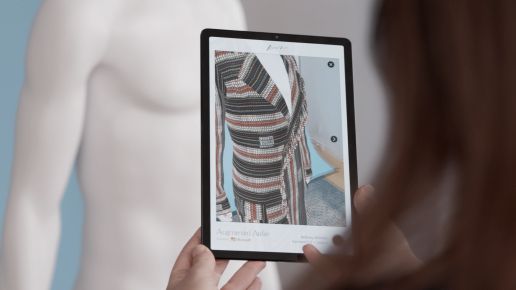
Be Inspired To Innovate and Push the Boundaries
Taking a visionary approach is founder of fashion magazine More or Less, Jaime Perlman. Last year the former Vogue UK creative director teamed up with Microsoft to launch ‘Augmented Atelier‘. The partnership was designed to advocate new tools for an alternative take on design. “It’s really about using technology as a form of imagination and how that reacts with the real world in a physical space. It’s about using technology to innovate and push the boundaries of what fashion can mean,” explained Jaime Perlman on the Microsoft.com blog.
Harnessing the capabilities of Microsoft Azure Spatial Anchors, Pearlman is not defying traditional methods independently; she has Bethany Williams, Phoebe English, Fredrik Tjærandsen, and Rottingdean Bazaar as part of her tribe. Working together, they have been busy bringing forward tools that offer the kind of solutions that bring sustainability, innovation and imagination to the forefront of the industry.
Defining Your Place In The Digital Economy
Streamlining the design process, pushing boundaries and reshaping attitudes, taking a digital approach to garment creation is not a radical choice but a necessary one. Although the digital journey can be challenging, more and more innovative tools are growing in prominence and being introduced to the industry. It is these tools that are giving fashion brands a better understanding of the opportunities that they present. Yes, digital technology is making it easier for fashion businesses to move towards a more digital model, but the question now is, are you, as a business, ready to embrace the change taking place in the industry?
With startup designers leading the way and defining their place in the digital economy, some still hesitate. If you are unsure if digital tools are the way forward, imagine this, having the ability to transfer real-life fabrics to your design. The good news is that you do not have to imagine anymore, thanks to The Scanatic™ Nuno3D Service. Digitally empowering fashion, the company offers a solution that allows for realistic fabric visualisation by rendering the fabric scan in the most true-to-life. It is an invention that enables designers to import different texture maps, like knitted fabrics, woven fabrics, synthetic fabrics etc.
Then there is CLO. Promising to revolutionise the design process by combating inefficiencies within the fashion industry, CLO is a software that can transform a brands workflow. With CLO, brands could bring their business presence to the next level. Offering true-to-life 3D garment simulation, CLO addresses today’s challenges by providing an efficient 3D design process. By guiding the fashion industry towards a future where designers can seamlessly integrate 3D into their operation, CLO makes it possible to virtualise a garment and transform a designer’s entire workflow.
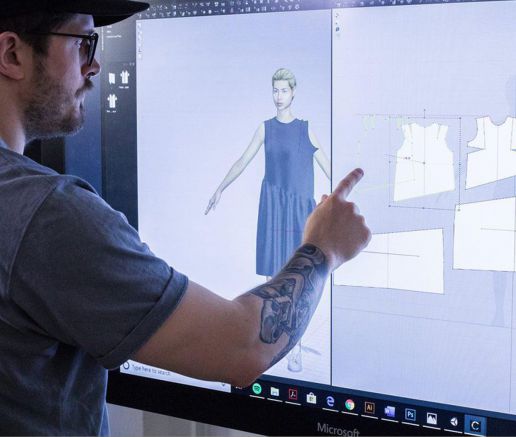
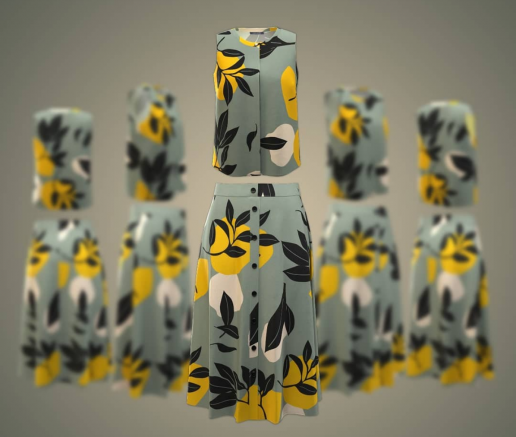
A firm favourite is TUKATECH. The software company has two digital fashion products, TUKAcad and TUKA3D. Created for designers looking to streamline their production process, the software eliminates the need for physical samples and makes it possible to create life-like digital collections. One of the critical features of TUKA3D is that it includes 3D virtual sampling in 5 visual ways, real-life virtual fit sessions and fabric and trims library.
Last but not least is Virtuality.Fashion. Driven to bring your fashion ideas to life, the company has made sharing creations virtually without sending physical samples easy breezy. Powered by C-Design, the collaborative platform makes sharing and collaborating with potential buyers or internally much more straightforward.
Digital Tools, The Ultimate Must-Have?
Presenting new opportunities for an industry that needs to change – digital tools are becoming the ultimate must-have for fashion businesses ready to transform existing design practices. More affordable than ever before, the good news is that the adoption of full-fledged digital solutions has gone from pleasant to have, to need to have. As we enter 2021, the fashion brands that are taking this positive step in the chaotic upside-down world we are currently doing business in are most likely going to be around for the long run, and for those who are reluctant to adopt digital tools, some experts predict that soon it will be too late.
Upcoming FABRIC DAYS is No Longer Possible
With the goal to realise a physical event for the fashion industry also in the Spring.Summer 22 season, our team has worked continuously to organise the second edition of FABRIC DAYS. We wanted to repeat what was proven in September 2020 with the sales focused, condensed business format: that efficient work is possible under the changed conditions thanks to strict hygiene and safety measures.
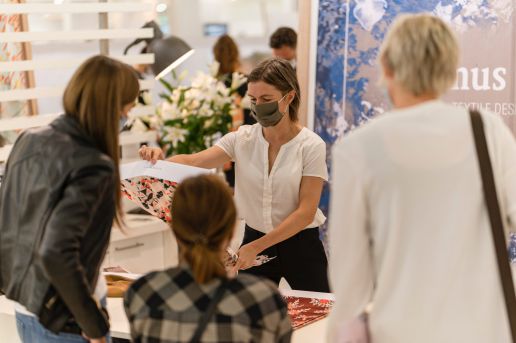
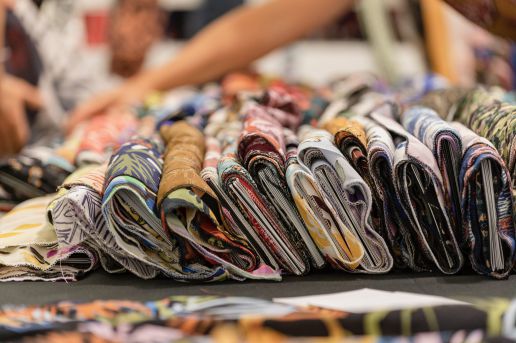
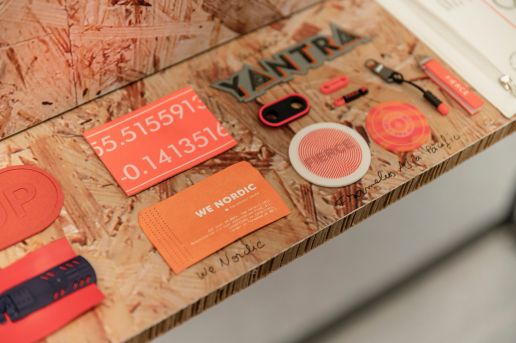
However, FABRIC DAYS planned for the beginning of March, does not follow after the summer months with lower infection numbers as the September edition had, but instead follows the winter months with persistently high infection numbers. Within the last weeks, the infection numbers in Germany and in Europe have unfortunately not definitively changed, which is why the German Government has prolonged and even intensified the current lockdown until at least January 31st 2021.
There are only 7 weeks until the beginning of March – unfortunately there is still no sign that the necessary decrease in infection rates will occur during this short period of time. Therefore, we currently have to assume that there will be no political basis on which trade fairs will be approved in Germany by then. In addition, travel restrictions are still in effect and the health and security of all visitors, exhibitors and service providers is as always of the highest priority.
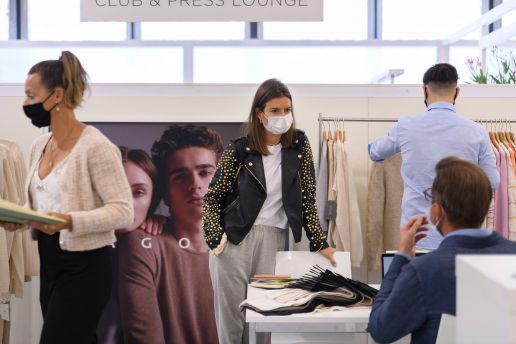
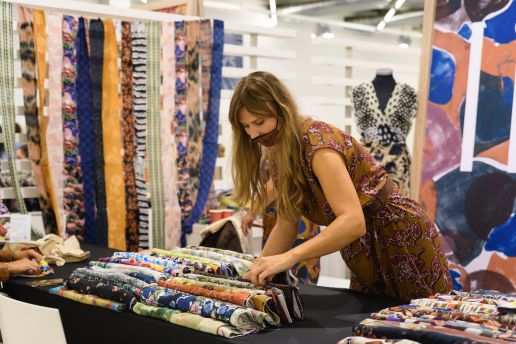
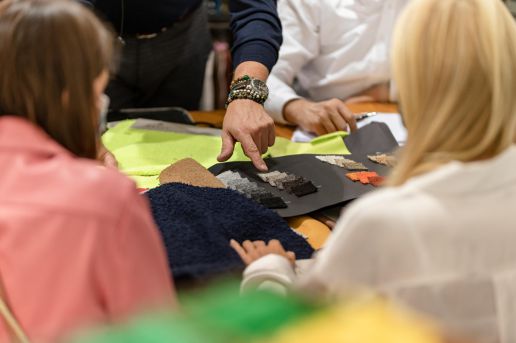
With the current level of knowledge as well as the experiences from the past months, which serve as the basis for a realistic assessment of further developments in the coming weeks, FABRIC DAYS at the beginning of March is unfortunately no longer justifiable. We feel therefore compelled to cancel FABRIC DAYS from 2 – 4 March 2021.
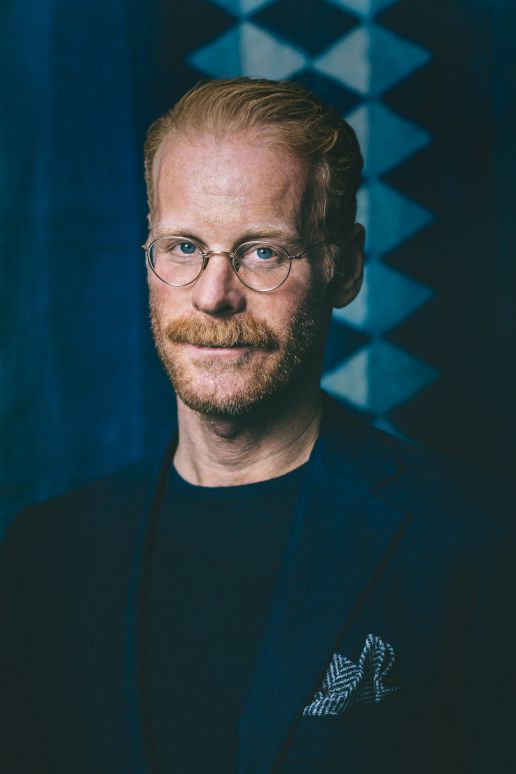
“This decision is one of our hardest since the beginning of the pandemic, if not since we started organising trade shows for the fashion and textile industry. To this day we believed that by joining forces we would be able to repeat our success from September. Especially thanks to the numerous exhibitor registrations and the great trust and support from the industry. Unfortunately, the situation is different in the current winter months and has made planning an event impossible.”
Sebastian Klinder, Managing Director Munich Fabric Start
In the coming weeks, we will, true to the motto of the Spring.Summer 22 season “WE ARE ALL IN”, concentrate on providing our long-term exhibitors and visitors with a new basis of information and inspiration and examine the options for the next trade fair.
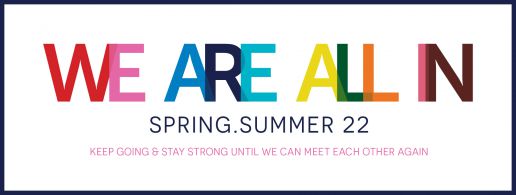
Cocccon Wins German Sustainability Award
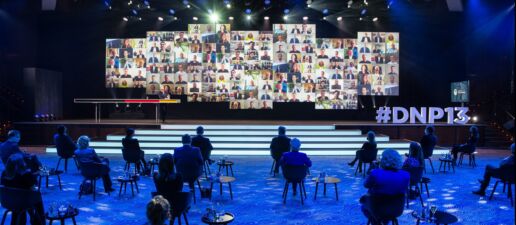
The German Sustainability Award (DNP) is the national award for top performance in the field of sustainability. The 2021 awards ceremony was held on 3 December 2020, as a hybrid event in which the finalists and the majority of the jury members were connected via live video. With nine competition categories it is the largest prize of its kind in Europe. A jury of experts selected 37 winners from 104 finalists in the new Design category which has been introduced in direct support of the United Nation’s Sustainable Development Goals.
Competing companies from the fashion and textile industry offered up a variety of sustainable solutions from recycled fashion to interiors and material development, resource-saving packaging solutions to furniture made from new materials and revolutionary waste reduction systems.
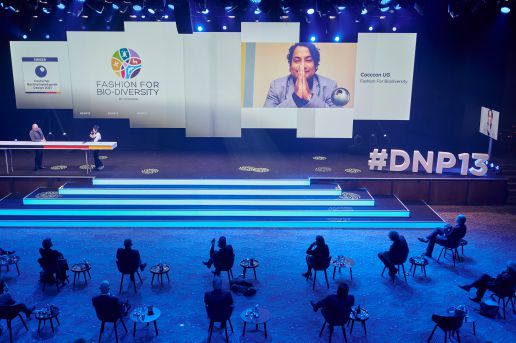
Among the winners were Cocccon, founded in 2012 by Indian designer Chanda Prakash. Recognised for pioneering “Fashion for Biodiversity” and producers of the bio-certified Peace Silk – a non-violent silk, the production of which only allows the silk threads to be extracted from the cocoons when the butterflies have already safely hatched.
“Our need to be fashionable endangers the earth’s biodiversity.
The increase in mass production has become threatening and is one of the main causes of the destruction of our ecosystems. It has also led to more frequent unexpected environmental disasters and resulting climate changes in textile producing regions.”
Cocccon designs & manufactures its textiles with the motto of creativity can care, caring for life and nature.
“We make sure that our designs do not adversely impact the environment. We converted a conventional silk farm into an organic one and processing is done in a new ecofriendly way.
This system requires less water, zero chemicals and zero emission. This has resulted in healing and revival of local biodiversity including microbes in the soil. This confirms fashion and destruction of ecology & biodiversity are not synonymous to on another. It is all about making responsible textiles for the next generations. We call this Fashion for Biodiversity.“
Chandra Prakash, Founder and Designer, Cocccon
All award winners receive a seal which is intended to help consumers determine which products and services they can consume with a clear conscience. Providing increased support for Cocccon as they continue to grow as the world’s largest producer of organic silk.
Cocccon also won second place at the 2018 HighTex Awards in Munich Fabric Start’s KEYHOUSE. This was the first time the innovation award recognised companies for their overall strategic commitment to resource saving production processes as well as innovative product development.
Cocccon were highly commended for their conscious production of luxury textiles and an innovative silk denim. The award winning GOTS-certified organic silk denim is biodegradable, with an anti-allergic finish as standard, the fabric is also handwoven and dyed using non-toxic chemicals. Prakash’s showcased the award winning Peace Silk as well as PET2Silk for the first time in Munich, which fabric shares similar qualities to silk but made of recycled PET bottles.
Prakash speaking about winning 2nd place in the 2018 HighTex Awards:
“The award is hugely important to us because it confirms our product philosophy and gives us a platform to spread the message further. We have been the world’s largest producer of organic silk for two years which constantly motivates when it comes to designing new products. The HighTex jury commended the denim-like silk shirt that requires only a fraction of water compared to conventional denim production without chemical additives.”
Chandra Prakash, Cocccon
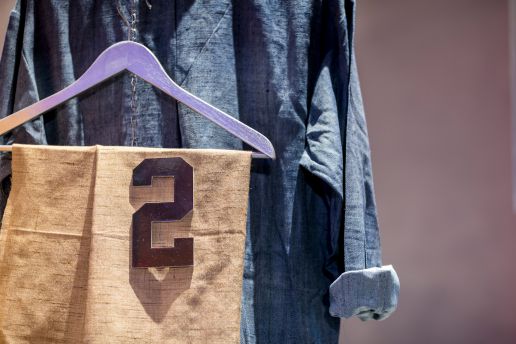
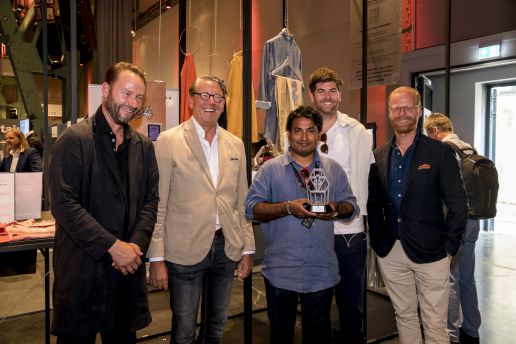

OPENING TIMES
2. MARCH 2021 · 9:30 – 18:30
3. MARCH 2021 · 9:30 – 18:30
4. MARCH 2021 · 9:30 – 16:00
LOCATION
MOC Munich | Halls 1 – 4 Groundfloor
Lilienthalallee 40
Germany, 80939, Munich
FABRIC DAYS Date Postponed to March
The ongoing situation demands the highest flexibility and versatility from our industry. As we all miss personal exchange with our industry partners we want to offer a safe and inspiring physical platform as soon as possible. With this goal, we, the team at Munich Fabric Start Exhibitions GmbH, are undergoing plans for the second edition of FABRIC DAYS.
THE GOAL: TO REPEAT THE SUCCESSFULL REALISATION OF FABRIC DAYS
We are eager to offer a platform for those manufacturers and suppliers who can and want to present their collections in Munich. What has been successfully realised in September with FABRIC DAYS shall be repeated: that a trade fair is possible under the new conditions with Covid-19.
Based on current infection rates and the situation in Europe, the German government has announced an extended set of measures last week. Unfortunately, there are no signs yet of a steady decline in infection numbers, which decreases the chance that FABRIC DAYS would be approved in the first weeks of the new year. The time frame is too short to expect that conditions will improve as they did before our trade fair in September 2020. The risk of cancellation at short notice is too high, which would leave no room to take alternative action.
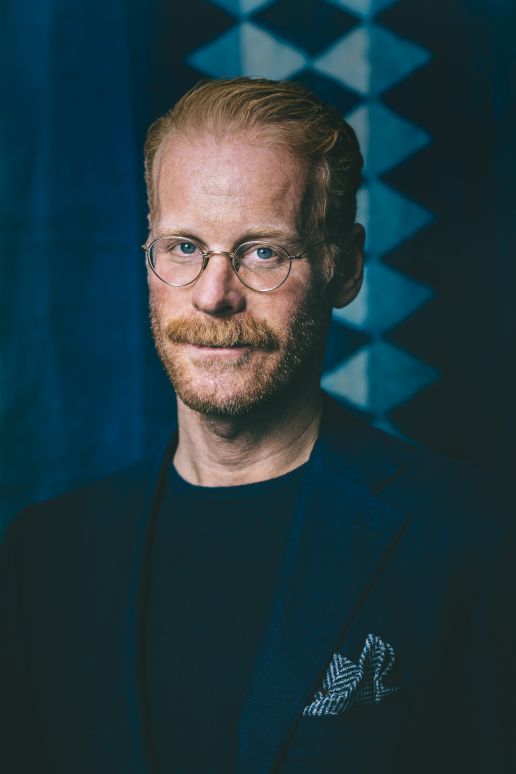
“If we look realistically at the next few weeks with the knowledge and experience gained over the past months, the date for FABRIC DAYS from 26 – 28 January 2021 is no longer justifiable for our exhibitors, visitors and for all contributors. Based on these facts, we feel obliged to postpone FABRIC DAYS by 5 weeks until 2 – 4 March 2021.”
Sebastian Klinder, Managing Director MUNICH FABRIC START
POSITIVE AND UNDERSTANDING FEEDBACK REGARDING THE NEW DATE 2 – 4 MARCH 2021
The first feedback from the exhibitors regarding the new date is understanding and positive. This underlines the very good response to FABRIC DAYS and the trust in us, the organisers. The need of the industry for a physical event in Munich is still high. We are expecting around 300 international suppliers to present their novelties and material developments for Spring.Summer 22.


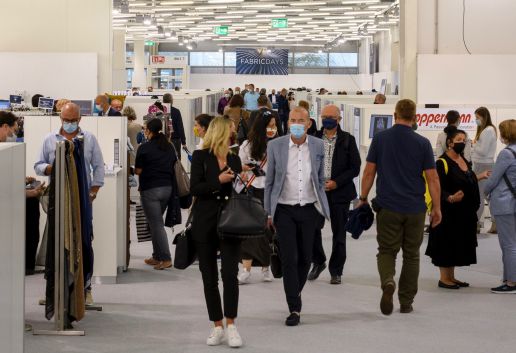

The condensed, business focused format of FABRIC DAYS offers the flexibility needed to quickly adapt to the currently changing circumstances. We want to offer the industry the planning security needed and a physical textile fair for personal exchange. Thereby, we are in constant contact with our long-standing exhibitors and partners to always be able to evaluate the needs of the industry.
OPENING HOURS
2 MARCH 2021 · 9.30 AM – 6.30 PM
3 MARCH 2021 · 9.30 AM – 6.30 PM
4 MARCH 2021 · 9.30 AM – 4.00 PM
LOCATION
MOC Munich | Halls 1 – 4 Ground floor
Lilienthalallee 40
D – 80939 Munich


